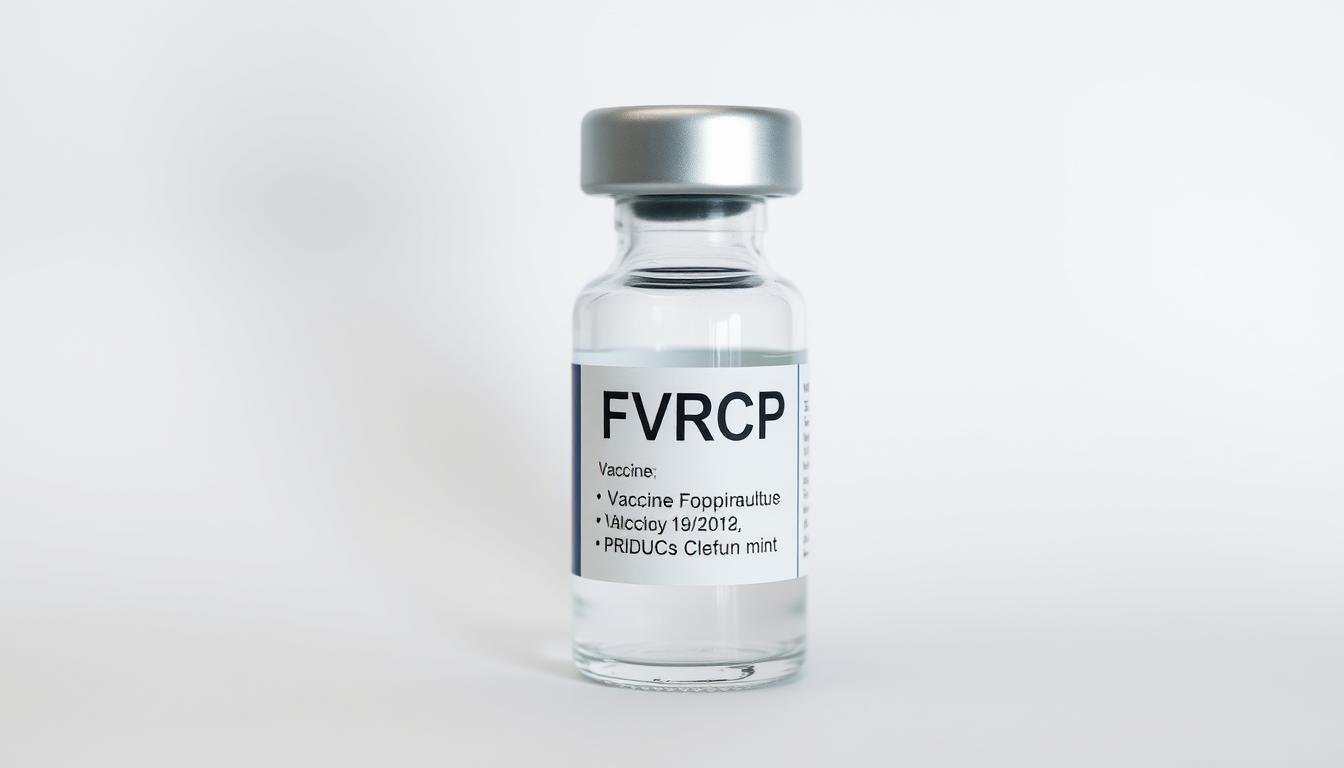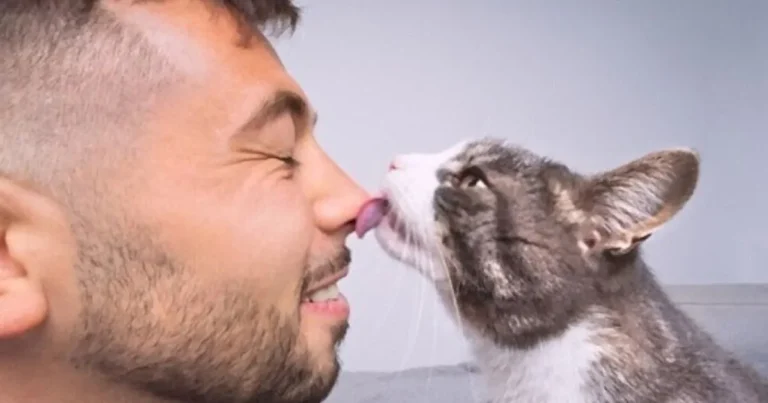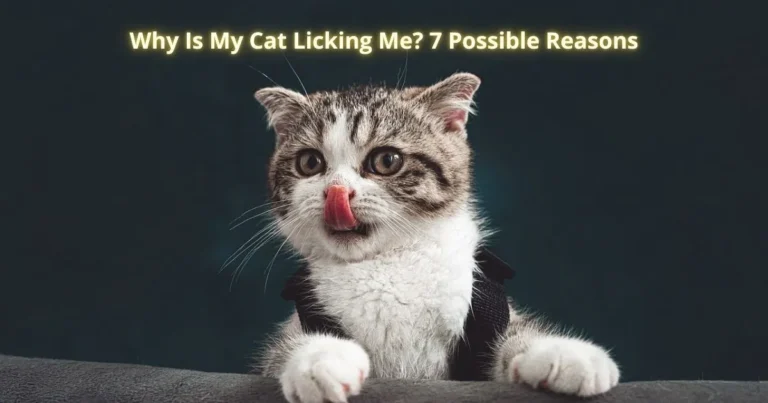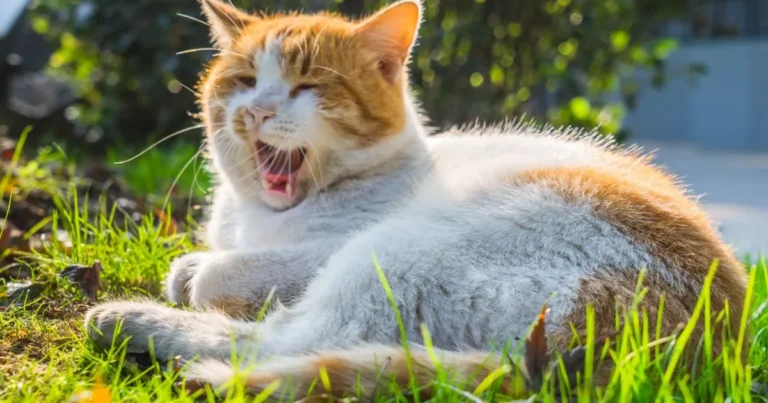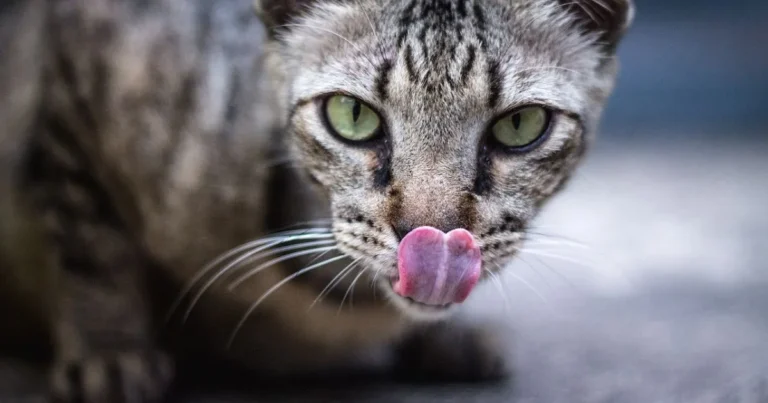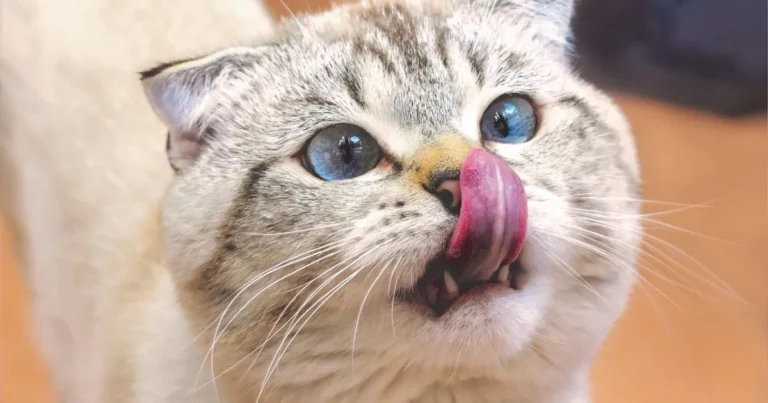What Is the FVRCP Vaccine for Cats? Everything You Need to Know
Table of Contents
Every cat lover knows the deep bond we share with our feline companions. When my veterinarian first mentioned the FVRCP vaccine for cats, I realized how critical preventive care is. It keeps our furry friends healthy and protected.
The FVRCP vaccine is a key part of your cat’s health. It protects against three serious viral diseases. These diseases can greatly affect your cat’s well-being. Knowing about the FVRCP vaccine is crucial for pet owners.
Veterinarians say all cats need the FVRCP vaccine, whether they stay indoors or go outside. This vaccine offers protection against many diseases. It helps keep your cat safe from serious illnesses.
Learning about the FVRCP vaccine for cats helps you make better health choices for your pet. Protecting your feline friend starts with knowing the right tools to keep them safe and healthy.
Understanding What Is FVRCP Vaccine
The FVRCP vaccine is a key part of keeping your cat healthy. It protects against three serious viral diseases. It’s a vital part of feline care that every cat owner should know about.
Learning about the FVRCP vaccine shows it’s a strong tool to keep your cat safe. It fights off three major diseases:
- Feline Viral Rhinotracheitis
- Feline Calicivirus
- Feline Panleukopenia
Core Vaccination Status
Vets say the FVRCP vaccine is a core vaccination. It’s needed for all cats, no matter where they live. The FVRCP vaccine is very important. It keeps your cat safe from serious viruses.
Importance for Indoor and Outdoor Cats
Even indoor cats need the FVRCP vaccine. It protects against viruses that can spread easily. These viruses can live on surfaces for a long time.
Multi-Disease Protection Features
The FVRCP vaccine fights off many diseases at once. It’s a single shot that keeps your cat safe from many risks. This helps keep your cat healthy for a long time.
- Reduces severity of viral infections
- Prevents widespread disease transmission
- Supports long-term feline health
Diseases Prevented by the FVRCP Vaccine
The FVRCP vaccine is a key defense for your cat against three serious viral diseases. It protects against feline viral rhinotracheitis, calicivirus, and panleukopenia. These diseases can harm your cat’s health a lot.
Knowing about these diseases shows how important the FVRCP vaccine is. Each part of the vaccine fights a different virus:
- Feline Viral Rhinotracheitis (FVR): A contagious respiratory infection
- Calicivirus: A severe respiratory disease that affects cats
- Panleukopenia: A viral condition that can be fatal and affects many body systems
Vets say all cats should get this vaccine. It keeps them safe from serious health problems and even death.
“Prevention is always better than cure, especially when it comes to your feline friend’s health.”
| Disease | Primary Impact | Vaccine Effectiveness |
|---|---|---|
| Feline Viral Rhinotracheitis | Respiratory System | 90-95% Prevention Rate |
| Calicivirus | Oral and Respiratory Tract | 85-90% Protection |
| Panleukopenia | Immune System | 95-99% Immunity |
Choosing the FVRCP vaccine is a smart move. It keeps your cat safe from harmful viruses.
Feline Viral Rhinotracheitis: Symptoms and Risks
Feline viral rhinotracheitis (FVR) is a serious respiratory disease that can harm your cat’s health. It’s one of the most common upper respiratory infections in cats. Knowing its symptoms and risks is key for cat owners.
Cats with FVR face tough symptoms that can lower their quality of life. The disease mainly hits the respiratory system, leading to various health issues.
Common Signs of FVR
- Persistent sneezing
- Nasal and eye discharge
- Inflamed eyes and nose
- High fever
- Reduced appetite
Duration and Severity
FVR’s severity can vary a lot. Young kittens and older cats are at higher risk. The disease’s acute phase usually lasts 10-14 days. Some cats may have ongoing respiratory problems.
Long-term Health Impact
Without the FVRCP vaccine, cats are at risk for more respiratory infections. Long-term, they might face chronic respiratory issues, weaker immune systems, and more infections.
Protecting your cat through timely vaccination is the most effective way to prevent the devastating effects of feline viral rhinotracheitis.
The FVRCP vaccine helps protect cats from this serious respiratory disease. By knowing the risks and symptoms, you can keep your cat healthy.
Understanding Calicivirus Protection
Feline calicivirus is a big threat to your cat’s health. It’s very contagious and can cause serious problems. The FVRCP vaccine is key to protecting your cat from this virus.
Calicivirus attacks your cat’s breathing system. It can make your cat very sick. They might have:
- Nasal congestion
- Persistent sneezing
- Eye inflammation
- Clear or yellow discharge from eyes and nose
- Painful oral ulcers
There are different types of calicivirus, each with its own level of danger. Some might just make your cat a bit sick. But others can be very serious. The FVRCP vaccine helps keep these serious infections away.
Vets say the best way to stop feline viral rhinotracheitis calicivirus panleukopenia is with vaccines. Vaccinating early can prevent serious breathing problems and long-term health issues.
“Prevention is always better than cure when it comes to your cat’s health.” – Veterinary Infectious Disease Experts
Keeping your cat up to date on vaccines helps fight off this tough virus. It keeps their immune system strong and improves their life quality.
Panleukopenia: A Serious Threat to Cats
Feline panleukopenia is a deadly virus for cats, especially kittens and unvaccinated ones. It attacks the immune system, causing damage that can be fatal without prevention.
The FVRCP vaccine is key in protecting cats from this disease. It targets young cats, who are most at risk because of their fast-growing cells.
Symptoms and Progression
Cats with panleukopenia show severe symptoms that can get worse fast:
- High fever
- Extreme lethargy
- Rapid weight loss
- Severe dehydration
- Persistent vomiting
- Bloody diarrhea
Treatment Options
There’s no cure for panleukopenia, but treatment can help. Vets usually suggest:
- Intensive fluid therapy
- Antibiotic treatments
- Nutritional support
- Managing secondary infections
Prevention Methods
Vaccination is the best way to prevent panleukopenia. The FVRCP vaccine helps the cat’s immune system fight off the virus.
“Prevention is always better than cure, especially with a deadly virus like panleukopenia.” – Veterinary Infectious Disease Specialist
Keep your cat safe with regular vaccinations and vet visits.
FVRCP Vaccination Schedule and Timing
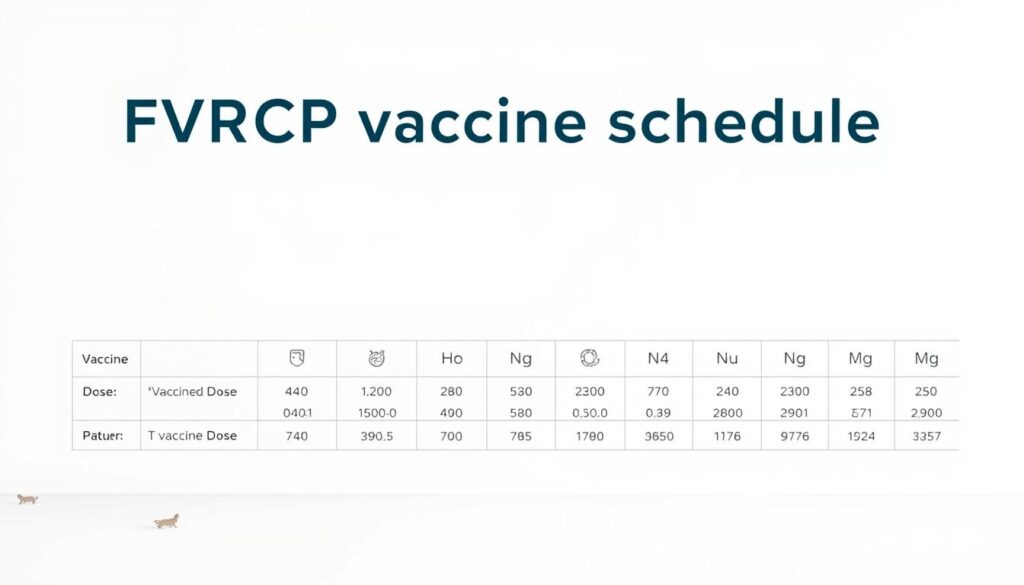
Keeping your cat healthy starts with knowing the right fvrcp vaccine schedule. Vaccination timing is key to strong immunity and preventing serious diseases.
Kittens need early vaccination. Your vet will suggest starting when your kitten is 6 to 8 weeks old. This is crucial for young cats, who are most at risk.
- First vaccination: 6-8 weeks of age
- Booster shots: Every 3-4 weeks
- Complete initial series: Around 16-20 weeks old
Adult cats need a different vaccination plan. After kitten shots, most cats get a booster a year later. Then, vets usually suggest shots every three years for best protection.
| Cat Age Group | Vaccination Frequency | Key Considerations |
|---|---|---|
| Kittens (6-20 weeks) | Every 3-4 weeks | Initial immunity building |
| Adult Cats (1-7 years) | Every 3 years | Booster maintenance |
| Senior Cats (8+ years) | Annual assessment | Individualized care |
Always talk to your vet to make a vaccination plan that fits your cat’s health needs.
Consistent vaccination is key to protecting your feline friend from potentially life-threatening diseases.
Cost Considerations and Value of FVRCP Vaccination
Knowing the cost of the FVRCP vaccine is key for cat owners. The initial cost might seem high, but the benefits for your cat’s health are worth it.
Price Range Factors
The FVRCP vaccine price varies based on several factors:
- Veterinary clinic location
- Local market rates
- Inclusion in wellness packages
- Cat’s age and health status
| Vaccine Setting | Estimated Cost Range |
|---|---|
| Private Veterinary Clinic | $20 – $45 per dose |
| Low-cost Vaccination Clinic | $15 – $30 per dose |
| Wellness Package | $10 – $25 per dose |
Insurance Coverage
Many pet insurance plans cover preventative care. This can lower your costs for the FVRCP vaccine. Check with your provider for possible reimbursement.
Long-term Cost Benefits
Getting the FVRCP vaccine can save you a lot of money. Diseases like feline viral rhinotracheitis or panleukopenia can cost hundreds or thousands of dollars to treat.
“Prevention is always more cost-effective than cure.” – Veterinary Health Professionals
By choosing vaccination, you keep your cat healthy and save money too.
Potential Side Effects and Reactions
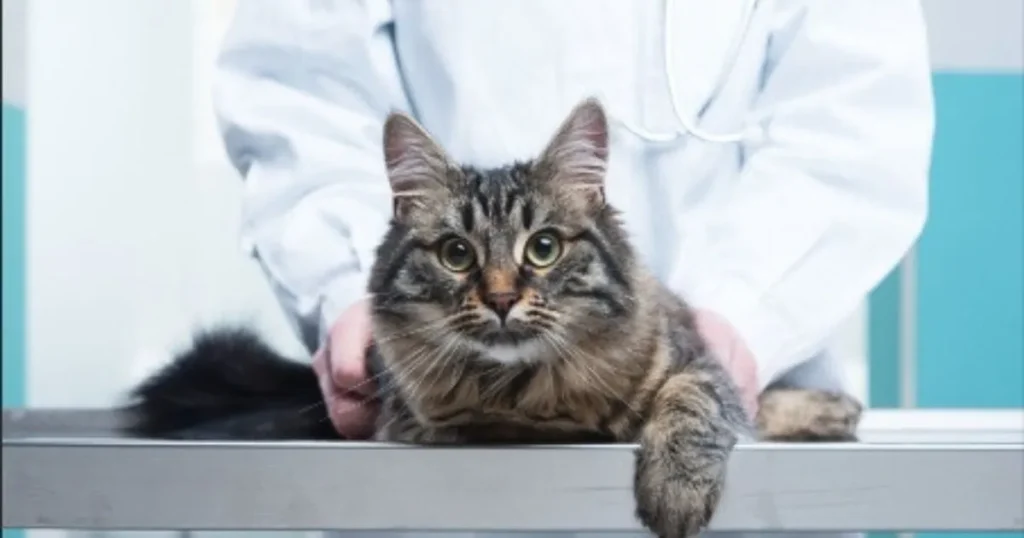
Most cat owners don’t have to worry about serious side effects from the FVRCP vaccine. Usually, cats handle the vaccine well and only show mild, short-term symptoms.
Common mild reactions include:
- Short-term lethargy
- Slight fever
- Mild sneezing
- Reduced appetite
- Minimal swelling at injection site
Even though these side effects are usually not serious, it’s important to watch your cat closely after the shot. Rare but more serious reactions can occur, which might need quick vet care.
Signs that need vet help right away include:
- Persistent vomiting
- Significant swelling
- Difficulty breathing
- Extreme lethargy lasting more than 24 hours
- Severe allergic reactions
Your vet can look at your cat’s specific situation and offer advice on vaccine side effects. Most cats don’t have much trouble and get back to their usual selves soon after the shot.
Safety and Effectiveness of FVRCP Vaccine
The FVRCP vaccine is a key part of keeping your cat healthy. It protects against serious feline diseases. Knowing how safe and effective it is helps you make better choices for your pet’s health.
Vets highly recommend the FVRCP vaccine for its safety. Studies show it works well with little risk to cats of any age.
- Prevents three critical feline diseases
- Developed through rigorous scientific research
- Recommended by veterinary experts nationwide
The FVRCP vaccine’s benefits are clear. Most cats don’t have serious side effects. The good it does far outweighs any risks.
| Vaccine Aspect | Safety Rating | Effectiveness |
|---|---|---|
| Clinical Testing | High | 95% Protection Rate |
| Side Effect Frequency | Less than 1% | Minimal Adverse Reactions |
Vets say the FVRCP vaccine is key in stopping deadly diseases. It greatly lowers the chance of serious health problems. This makes it a must for caring for your pet.
“Prevention is always better than cure when it comes to your cat’s health.” – Veterinary Infectious Disease Experts
Your cat’s health needs are unique. Talking to a vet can help you see the vaccine’s benefits. They can also make sure it’s given safely and right for your cat.
Conclusion
The FVRCP vaccine is key for cat owners wanting to protect their pets. It keeps cats safe from harmful viruses that can hurt their health and happiness. Knowing the benefits of the FVRCP vaccine helps you make smart choices for your cat’s health.
Vets say this vaccine is essential for keeping cats healthy. It protects against serious diseases like viral rhinotracheitis, calicivirus, and panleukopenia. Regular shots build a strong defense against these diseases, keeping your cat healthy for years.
Start by taking your cat to the vet regularly and keeping their shots up to date. Talking to a vet will help you find the best vaccination plan for your cat. This shows you care about your cat’s health.
Getting the FVRCP vaccine is more than just immediate protection. It’s a long-term plan for your cat’s health and happiness. By staying informed and acting quickly, you can help your cat live a long, happy life without preventable diseases.

